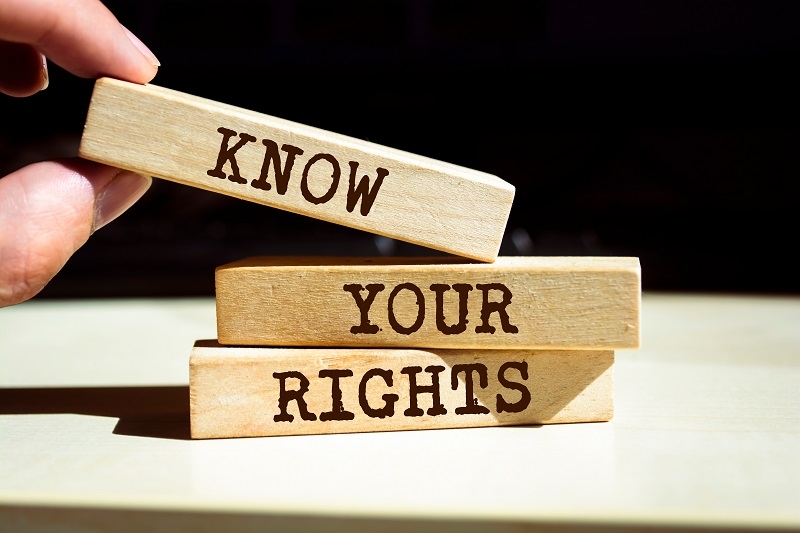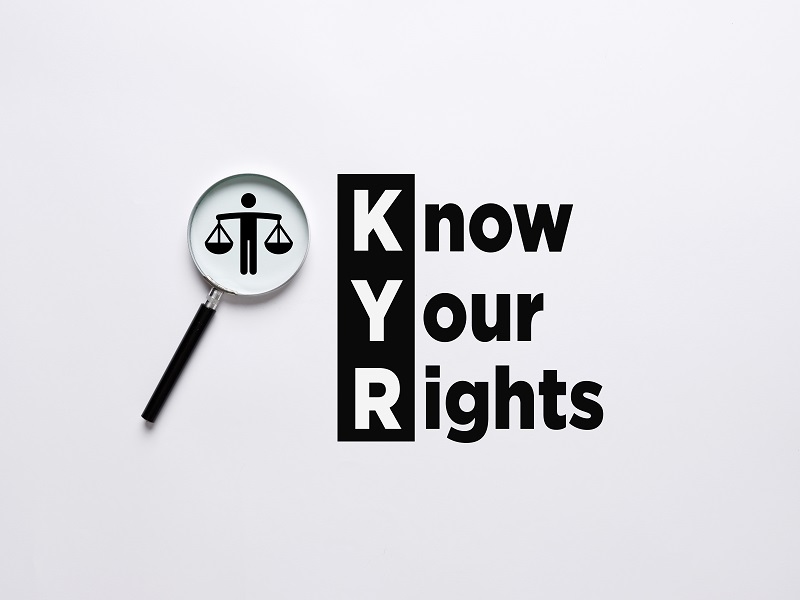
When we consider legal matters, the rest of us tend to think of sensationalized courtroom dramas, convoluted lawsuits, or Hollywood cases dominating the headlines. But the law intrudes on our existence in far more prosaic fashion. From the office where we spend most of the week, to the apartments that we rent, to the stores where we purchase staples, the law is working quietly and building and protecting our daily lives. These everyday legal rights are not abstract. They are practical safeguards that exist so that our most mundane activities are fair, safe, and dignified.
This blog looks at the everyday situations under which your underlying legal safeguards operate. We explore in depth workplace rights, tenant rights, and shopping rights—and show how knowledge of them empowers you to protect yourself and others.
Everyday legal rights is an explanation for the protections and entitlements contained in the everyday, everyday life. They are not as much about punishment as top-stakes crime cases are, but more about balance—ensuring no one is disproportionately disadvantaged at work, at home, or in consumer life.
In the United States, the vast majority of these protections are rooted in federal laws, with some being derived from state or municipal law. Civil rights, labor codes, housing codes, and consumer protection laws are all part of the vast matrix of underlying legal protections.
Knowing these rights isn't just about avoiding getting in trouble—it's about empowerment. If you're aware of your protections, you're able to stand up for yourself, hold others accountable, and make informed decisions.
A lot of our daily lives are spent at the workplace. It is on this account that workers' rights form one of the most important categories of legal daily rights. Federal and state labor laws guarantee that employees be dealt with justly, given fair compensation, and are protected from harm.
The Fair Labor Standards Act (FLSA) sets the ground rules for wage protection. It guarantees a federal minimum wage and demands overtime pay for qualified workers who work more than 40 hours a week. Even in a tipped occupation, there are rules to stop your minimum wage from being reduced unfairly.
Title VII of the Civil Rights Act, the Americans with Disabilities Act (ADA), and the Age Discrimination in Employment Act (ADEA) all bar workplace discrimination. These acts shield you from discrimination on the basis of race, gender, religion, disability, or age. These are some of your basic legal protections and extend to hiring, promotions, and termination.
The Occupational Safety and Health Administration (OSHA) watches over laws to provide workplaces with safety from hazards. If your work environment is not safe, you have the right to report issues without facing threats of retaliation.
Through the Family and Medical Leave Act (FMLA), eligible employees can take unpaid, job-protected leave for some family or medical reasons. This means you won't have to sacrifice job protection for health care.
Understanding your workplace rights enables you to recognize better when an employer is pushing boundaries or violating labor laws.
Whether renting one room or a large apartment, tenant rights are a significant aspect of your daily life. Shelter is among our most basic needs, and laws are created to protect tenants from being exploited by landlords.
Landlords are also required to supply safe and habitable conditions. That includes functioning plumbing, heat, electricity, and safeguards against health risks like mold or bugs. Tenants can withhold rent or request repairs when conditions are not fulfilled, depending on the state.
Among the most important tenant rights is immunity from eviction without due process. Landlords must follow procedures in accordance with the law, which generally include providing written notice and, in most cases, proceeding through court proceedings.
Your landlord is not allowed to enter your home at whim. Although laws vary from state to state, usually landlords are required to give notice before they come over, except in emergencies. This intrusion on your privacy is part of your basic legal rights.
Most states have laws regulating how landlords handle security deposits. Laws dictate how quickly deposits must be returned when you move out and whether or not landlords have to deliver an itemized list of charges taken.
Being aware of your tenant rights assists you in holding your landlords accountable and maintains your housing conditions affordable and safe.
Every time you step into a shop, shop online, or hire a service, you activate your consumer rights. These rights protect consumers against fraud, hazardous products, and misleading behavior.
The Federal Trade Commission (FTC) enforces laws that guard consumers against deception by companies in any form of unfair methods or deceptive advertising. If a company misleads you about the product, you can demand a replacement or refund.
The Consumer Product Safety Commission (CPSC) oversees products to ensure that they are safe for consumers to use. From toys for children to appliances for the home, products are regulated through safety testing. Your daily legal rights ensure that harmful products can be recalled and that manufacturers are legally responsible.
Fair Credit Reporting Act (FCRA) and the Truth in Lending Act (TILA) provide protection when you buy a credit card, loan, or financing. They require clear disclosure of the terms and ensure your credit information is treated responsibly.
Laws say otherwise, but they mostly grant protections to returns of defective or misrepresented products. At times, retailers must clearly outline their return policies. These are part of your consumer rights, and knowing them ensures that you are not trapped by abusive sales tactics.
By asserting your consumer rights, you ensure that businesses are decent to you and honor their commitments.

While workplace rights, renters' rights, and consumer shopping rights cover a lot of what's in everyday life, your essential legal safeguards reach much deeper.
Since so much of everyday life is conducted online, privacy legislation counts more than ever before. Laws safeguarding information compel companies to keep your personal information safe and notify you if a breach occurs.
Civil rights bills protect against discrimination in public places such as restaurants, hotels, and theaters. It ensures equal access to primary services and opportunities. Under federal and state laws, access to education is equal regardless of race, gender, or disability. These laws ensure that children and youths have an opportunity to learn in an equitable environment.
All citizens should have the right to vote freely without intimidation or discrimination. One of the most fundamental everyday legal rights is this, defining how our democracy operates.
Legal protection is useless if people don't know about it. The majority of abuses of workplace rights, tenant rights, and consumer shopping rights occur because people don't know what the law already has to offer. By knowing your basic legal protections, not only are you looking out for yourself, but you are also helping to make society take responsibility.
Awareness has a ripple effect. When one tenant demands decent homes, it pressures landlords to improve others' homes. When laborers raise their voices about hazardous workplaces, it benefits all their colleagues. When customers demand fair treatment, corporations alter their business practices.
The law is not for lawyers, courtrooms, or bureaucrats either. It's woven into the fabric of our everyday lives, safeguarding and guiding us in the countless small ways we touch other people. Whether you are working in an office, entering a lease agreement, or picking groceries up, your day-to-day rights under the law are working for you in the background, bringing fairness and accountability.
By being aware of your workplace rights, standing up on your tenant rights, and asserting your shopping rights, you're upholding the basic legal protections that enable our way of life to function smoothly. Knowledge is power, and here it's protection as well. Next time you're confronted with a routine situation, remember the law is there as well—standing silently in your favor.
This content was created by AI